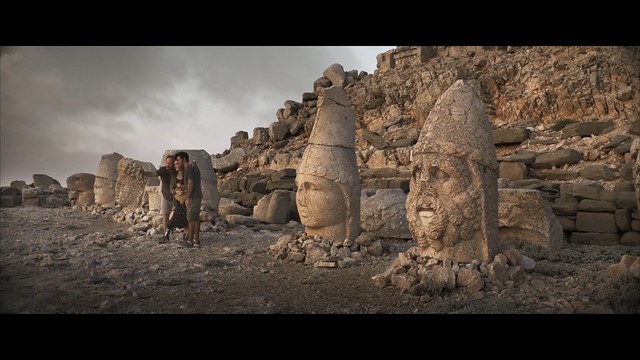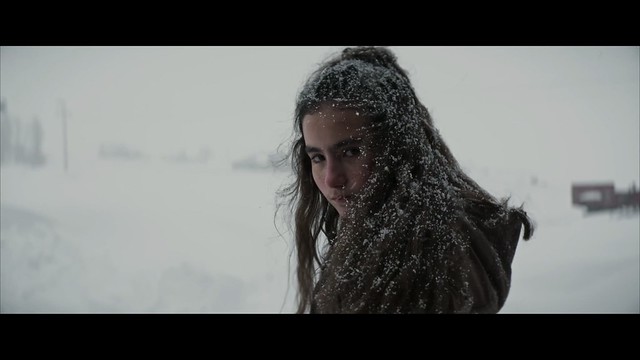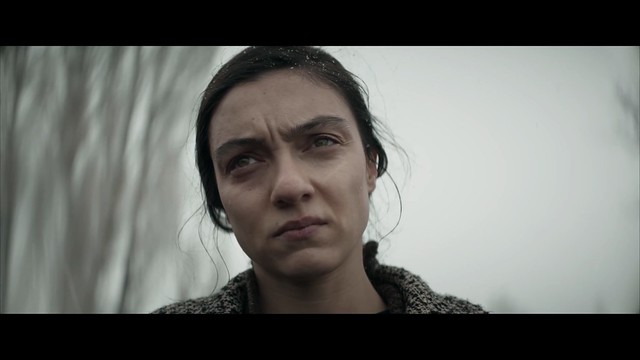 The latest film by Turkish film director, photographer, screenwriter, Nuri Bilge Ceylan, About Dry Grasses is three-plus hours of novelistic contemplation on human conditions in a stunning rural East Turkey backdrop.
The latest film by Turkish film director, photographer, screenwriter, Nuri Bilge Ceylan, About Dry Grasses is three-plus hours of novelistic contemplation on human conditions in a stunning rural East Turkey backdrop.
Among the best Turkish New Wave directors, along with Reha Erdem (Times and Tides, My Only Sunshine) and Semih Kaplanoğlu (Honey, Commitment Hasan) Ceylan built a reputation as the world's most novelistic filmmaker, with deliberately slow pacing, long takes and themes steeped in vagaries of human existence, in often beautiful rural and urban settings in Anatolia and Istanbul. Indeed, experiencing each of his films is similar to reading a great thick book. And it's deeply satisfying, every time.
Ceylan studied engineering in school, then became a photographer: it is apparent that he has an eye for landscapes as you watch his films. Consider the snowy streets of Istanbul in Distant, ancient ruins on a hot summer day in Climates, the winding mountain roads from above at dusk in Once Upon a Time in Anatolia, the icicle covered resort in Winter Sleep, and snow-capped mountains in About Dry Grasses, just to name a few. And there is always a cinematic showstopper in every one of his films that makes your jaw drop.
Yet, it's his juxtaposition of close-ups of the faces and their surroundings that gives meaning to his work. We humans exist among those spectacular places, with our jealousies, greed, lust, pride and other qualities intact.
With his wife Ebru Ceylan as a writing partner on most of his films, along with actor/physician Ercan Kesal (Three Monkeys, Once Upon a Time in Anatolia) and actor/teacher Akin Aksu (Wild Pear Tree, About Dry Grasses), he sketches out great, lived-in melodramas like no other.
Within the generous running time -- since Anatolia's comparitively modest 155 minutes, the runtime of Ceylan's films are more than three hours -- we get to know every main character in an intimate way with their faults and weaknesses, as well as their redeemable qualities. We get to live with them, like a main character in a great thick novel, at least a short while in darkened theaters. With Winter Sleep, the Palme d'Or winner 2013, adapting Anton Chekhov's play, The Wife, Ceylan explicitly let his audience know where his influences originate and where his interests lie thematically, while not sacrificing his cinematic playfulness.
About About Dry Grasses:






 About Dry Grasses deals with the usual Ceylan themes: how to live within your environment without making your surroundings a personal living hell.
About Dry Grasses deals with the usual Ceylan themes: how to live within your environment without making your surroundings a personal living hell.
Samet, our protagonist, skillfully played by Deniz Celiloglu, is a teacher in a small rural village, returning from the summer recess. He is counting the days until he is to reassigned and out of rural living, after the government's mandatory assignment period ends.
He is easily irritable and self-centered. Overall, he is not a likable character, like many other of Ceylan's male protagonists. All three principal characters -- Samet, Nuray (Merve Dizdar, Best Actress at Cannes 2023), Kenan (Musab Ekici), and Sevim (16-year-old Ece Bağcı) -- are exceptionally great.
There are many great moments in the film but one showstopper comes in late in the third act of the film. After accusations of inappropriate behavior with the students quiet down, Samet's favorite student Sevim poses for him outside school in the snowy field, as he is an amateur photographer.
It's the closeup of Sevim's face, where Samet sees betrayal, lies and vengeance, while the audience sees innocence, beauty and indifference. While self-absorbed Samet might not realize, but we do, that it's our projection on others that makes our lives miserable.
Also, it is the first time in a long while Ceylan plays with the film medium. He used non-professional actors until the mid-2000s. He even starred along with his wife Ebru in Climates as a fictional couple in a tale of disintegration of a marriage shot on digital video.
If the run of Anatolia, Winter Sleep and The Wild Pear Tree gave the impression that the Turkish auteur is just making wordy filmed plays in a spectacular setting, About Dry Grasses will surprise you. There is a third-wall breaking scene in Grasses, where Samet and Nuray get intimate after being drunk.
The camera follows Samet to the bathroom, then out the door to a film set in a lot, revealing that the tiny apartment filled with trinkets of Nuray's life is indeed a film set, which takes you out completely from the film narrative. It gives you a sudden jolt that all the characters' lives, their thoughts and intimate details and blemishes that you invested in for the last two hours, are indeed a fiction. That now you can take a breather and reset.
With About Dry Grasses, we are witnessing a great, mature filmmaker paving his legacy as a novelistic filmmaker with a visual flair in the league of Tarkovsky and Bergman.
About Dry Grasses enjoys its U.S. premiere Friday, February 23, at Film Forum in New York City.
My review of Once Upon a Time in Anatolia (2012)
My review of Winter Sleep (2014)
My review of Wild Pear Tree (2018)
No comments:
Post a Comment